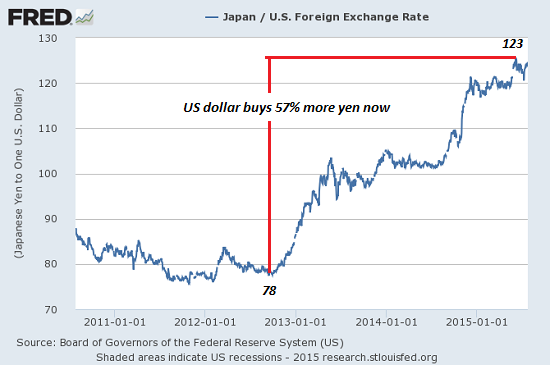“Human beings and nature must not be at the service of money. Let us say no to an economy of exclusion and inequality, where money rules, rather than service. That economy kills. That economy excludes. That economy destroys Mother Earth.”
What the Pope calls “an economy of exclusion and inequality, where money rules” is widely evident. What is not so clear is how we got into this situation, and what to do about it.
Most people take our monetary system for granted, and are shocked to learn that the government doesn’t issue our money. Almost all of it is created by loans made “out of thin air” as bookkeeping entries by private banks. For this sleight-of-hand, they charge interest, making a tidy profit for doing essentially nothing. The currency printed by the government – coins and bills – is a negligible amount by comparison.
The idea of giving private banks a monopoly over money creation goes back to seventeenth century England. The British government, in a Faustian bargain, agreed to allow a group of private bankers to assume the national debt as collateral for the issuance of loans, confident that the state would be able to service the debt on the backs of taxpayers.
And so it has been ever since. Alexander Hamilton much admired this scheme, which he called “the English system,” and he and his successors were finally able to establish it in the United States, and subsequently most of the world.




 We’ve seen some significant swings in precious metals over the last several years and if we are to believe the paper spot prices and recent value of mining shares, one would think that gold and silver are on their last leg. Last weekend precious metals took a massive hit to the downside, sending shock waves throughout the industry. But was the move really representative of what’s happening in precious metals markets around the world? Or, is there an effort by large financial institutions to keep prices suppressed? In an open letter to the Commodity Futures Trading Commission First Mining Finance
We’ve seen some significant swings in precious metals over the last several years and if we are to believe the paper spot prices and recent value of mining shares, one would think that gold and silver are on their last leg. Last weekend precious metals took a massive hit to the downside, sending shock waves throughout the industry. But was the move really representative of what’s happening in precious metals markets around the world? Or, is there an effort by large financial institutions to keep prices suppressed? In an open letter to the Commodity Futures Trading Commission First Mining Finance

 This is the question that astute investors are forced to ask themselves these days. No reasonable person believes that a system of ever-expanding debt can resolve painlessly. It simply cannot happen… not, at least, until 2+2 stops equaling four.
This is the question that astute investors are forced to ask themselves these days. No reasonable person believes that a system of ever-expanding debt can resolve painlessly. It simply cannot happen… not, at least, until 2+2 stops equaling four.

